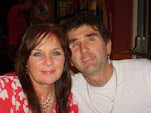
The NORTHERN BOTTLENOSE WHALE, or 'Gilbert' as he was affectionately nicknamed (after Gilbert-Smith, a RNLI lifeguard who first spotted it), which was seen off Bournemouth beach and in Poole bay (Dorset) from 13-18 September was sadly washed up on a beach in Bournemouth last night.
Related Articles in the Telegraph newspaper
Related Articles in the Telegraph newspaper
Jellyfish head for UK in bumper numbers
Coast beauty spots will be given up to the sea
Four Portuguese Man o' War seen in British waters
Mutilated dolphins washing up on UK coasts
Jumbo flying squid attack divers
The following excerpt was published in yesterday's Telegraph
''Members of the public were warned not to go on to the beach out of fear the mammal had a contagious disease. The spokesman said: ''Unfortunately Gilbert the bottlenose whale has been washed up on a beach in Bournemouth and is dead. Officers from British Divers Marine Life Rescue are with the whale and a marine biologist will be attending in the morning. They request that members of the public do not attend the beach as it is not known at this stage if Gilbert died of any contagious diseases.''
Fears for Gilbert's well-being had been expressed because the whale would not be able to feed in the area. The species of whale would normally travel around Scotland and the west coast where it would have access to its normal food source of squid. Without this food it was feared it would starve and dehydrate.
Sue White, of the British Divers Marine Life Rescue (BDMLR), said that the Northern Bottlenose could have become dehydrated without water from the squid. She said it was not known why Gilbert was in the area and that he might have taken a wrong turn into the Channel. She added: ''It is very unusual to have a Northern Bottlenose on the south coast.
''The northern bottlenose are deep divers and they get the water they need from the squid they eat and can get dehydrated without that.'' Ms White added that the BDMLR had received an increase in reports of Northern Bottlenose Whales stranding or coming close to the UK shore.
She said the organisation, which began in 1988, had not received any reports prior to the whale that swam up the Thames in January 2006 but had since received about eight to 10 reports of sightings or strandings. She added: ''We do not know why this happens, they may have taken a wrong turn, it may be there are more of them since whaling was restricted.''
She said the organisation, which began in 1988, had not received any reports prior to the whale that swam up the Thames in January 2006 but had since received about eight to 10 reports of sightings or strandings. She added: ''We do not know why this happens, they may have taken a wrong turn, it may be there are more of them since whaling was restricted.''






